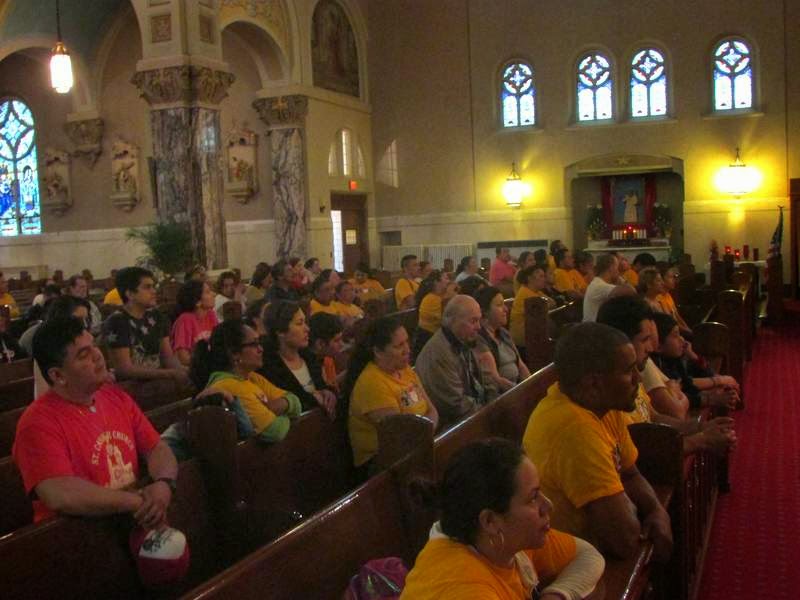John O'Donnell is a clever judge. He picked the perfect time to announce his verdict. For one who does not work retail, or directly with customers, the time was the optimum in getting work done peacefully—Saturday morning on a holiday weekend. Even moreso in downtown Cleveland. I enjoyed working such days, one had access with few people around. This was always a great time to work: very few people around. In construction (and some other work), traffic is light, very light, there are fewer people in your way. You get more done, there is less supervision, there is less other trades about, there is less of your trade around. On a holiday weekend people leave early to get out of town, a three day weekend is stretched to four, and people free up time ahead, not at the end. School is not in session. So, the crowd is reduced, people have gone out of town. Early Saturday people are sleeping in, they find out late that anything happened, and the word spreads slower. Ten a.m., giving the press two hours notice, caught them off guard. The local television stations called people in for the big story.
John O'Donnell is a clever judge. He had his verdict written, and bid his time. If the policeman was to be 'found' guilty, the timing would not have been so important.
John O'Donnell is a clever judge. If the policeman was to be 'found' guilty, O'Donnell would have a difficult working life. The police would see to it. He would find the next election (if he was running) to be difficult. Recently, he ran for State Supreme Court; that would not be possible again, his re-election as a county judge would be difficult.
John O'Donnell is a clever judge. His preliminary statement was very good, and accurate, and in depth and breadth. So good in fact that its truth was unpleasant to the establishment, and the police are definitely part of the establishment.
John O'Donnell is a clever judge. He used the mannequins with the bullet trajectories as a teacher would to prove and demonstrate a lesson in fact. His rationale, point by point, was presented logically [although quoting Scalia, was tipping his hand]. He gave a good argument for his process of decision. It will not be overturned [if someone would attempt]. But it is a dangerous and wrong opinion and decision. Any policeman can kill anyone by saying "I felt in danger". No civilian is safe or legally protected from the actions of any policeman. O'Donnell recognised that bullets from Brelo's gun were among the lethal shots to both victims, but there were several other bullets that were lethal fired by others; so which two bullets caused the deaths? This gives police the impetus to shoot at someone that has already been fired at, the more police shooting—the less chance for guilt to be assigned. Also any false assumption (or myriad) the police act on is to be considered as being operatively true at the moment. This gives police added impetus to lie, for any such lie will be considered as good faith at the moment.
The defence attorney, Pat D’Angelo, post decision statement was inflammatory. His client won, and the gracelessness and venom he directed at the prosecution was extreme. He was trying to surpass the patrolmen's union president's gall in attacking anyone who did not pay tribute to police. The sister (Michelle) of the dead man, Timothy Russell, spoke very well, measured, and carefully in her interview.
Chris Tye of WKYC made an excellent observation. The immediate response
of the protestors was peaceful, as were earlier protests. The purpose of
the protests, including blocking traffic, is to disrupt the status quo
BECAUSE that is the only way they will be noticed, because the status
quo wishes to ignore them.
Cleveland did not protest violently (as of yet). In fact those protesting the protestors threaten to be violent. Careful choreography and behind the scenes planning helped greatly. All of this cost the city much money and anguish. If the city, this one or another, wishes to save money and prevent anguish from these sorts of events—they must rein in the police.

























.JPG)
.JPG)
.JPG)
.JPG)




.JPG)

.JPG)
.JPG)
.JPG)
